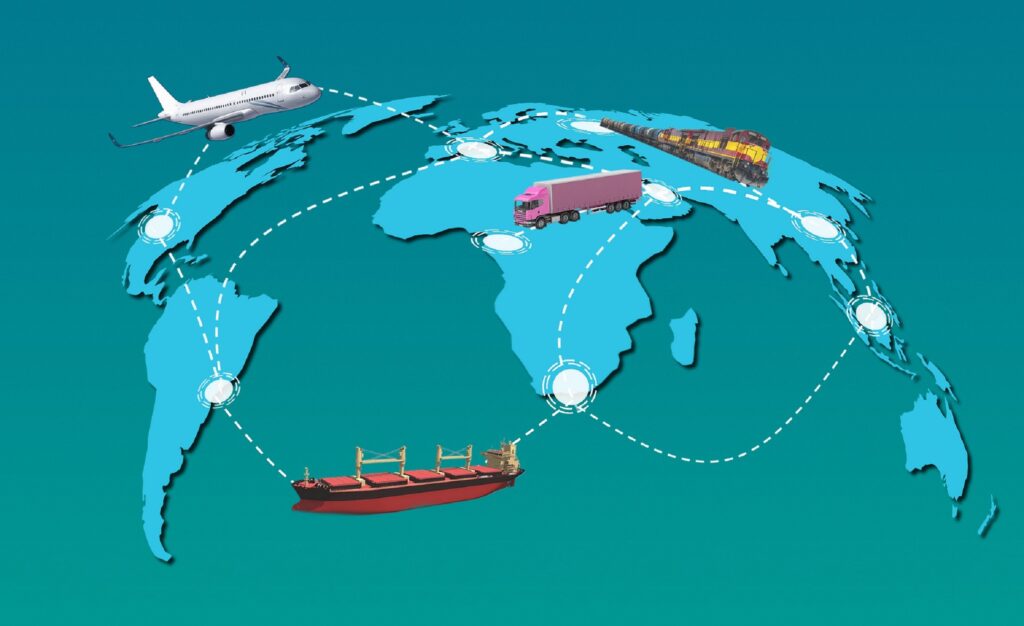Technology disruptions are commonplace, but a few can blow your mind. And, we will soon talk about one such breakdown here.
We are talking about a new wave of two most prominent technologies – artificial intelligence and data analytics, which are already influencing many marketplaces and industries. During the pandemic and even after that, plenty of industries struggled with their routine work, but a few industries took advantage of these technologies and created a mark, and supply chain is one of them.
Recent surveys and studies have already proved that adoption of AI in the supply chain has given better results in smart manufacturing, inventory management, dynamic logistic systems, and real-time delivery controls.
The primary goal of the AI in supply chain is to increase efficiency.
The Role of AI in Supply Chain Management
Using AI in the supply chain entails relying on intelligent machines, which can mimic or replace intelligent human behavior. For example, in problem-solving or learning. Modern supply chain teams can apply AI in the supply chain management in the following two ways:
- Automating processes and systems so that everything can be operated without the need for any human intervention.
- Leveraging the power of AI to assist human-dependent decision-making process in daily operations to reduce errors and identify bias, mostly during data analysis.
Undeniably, warehouse logistics and other transport operations generate huge amounts of data. If you, as a modern supply chain leader, want to gain full benefit from the data, it is important to use analytics tools to gain better insights. The latest AI tools and software offer the functionality to cater to modern supply chain needs. Let us check some of the notable tools here.
1. Logility Solutions
Logility Solutions is one of the leading supply chain optimization platforms leveraging machine learning to automate planning, accelerate decision-making, and augment performance across the organization. The tool is perfect for businesses looking forward to delivering better business results. Trusted by leading brands of the world, the platform enables businesses to seize new opportunities, respond to market dynamics, and manage their complex global supply chains.
2. Magaya Supply Chain
Magaya supply chain is a logistics software offering a unified solution for all the supply chain needs such as operations, warehousing, tracking connectivity, accounting, and compliance. It optimizes each step to meet the demands of the modern supply chain.
3. IBM Supply Chain
IBM Supply Chain is an intelligent suite, AI-based, and comes with an automation solution made for organizations struggling to cater to complex global supply chain needs. The tool helps organizations to improve their supply chain resiliency, accelerate time-to-value with actionable insights, and bring sustainability, smarter workflows, and intelligent automation.
4. Advanced supply chain software
It is a hybrid supply chain solution helping businesses across various industries to manage vendor agreements and inventories. It also helps in measuring performance across a company’s supply chain. With Advanced Supply Chain Software, companies can track their routine operations easily. The tool can be deployed on-premise or on the cloud.
5. Solvoyo
Solvoyo, with its advanced supply chain capabilities, bring the future of supply chain management to the table. From offering end-to-end supply chain planning to the smart analytics platform powered by machine learning technology, Solvoyo is one of the best supply management tools that a team picks up.
Read More: SalesTechStar Interview with Jeff Santelices, CRO at MindTickle
AI in Supply Chains – What is your business advantage?
1. Accurate inventory management
AI-based supply chain management can ensure a seamless flow of inventory in and out of a warehouse. Generally, there is plenty of inventory-related variables like ordering, picking, and packing, everything altogether can become quite time-consuming. AI-driven tools have proved themselves highly effective in inventory management.
2. Warehouse efficiency
To maintain a proper supply chain in an organization, the warehouse must remain efficient throughout. Automation in supply chain can assist in the timely retrieval of an item from the warehouse and ensure its traverse to the customer safely.
3. Enhanced Safety
There is no denying that AI-based automated tools will bring smartness and efficiency to the entire supply chain system. As a result, worker and material safety will be increased. AI will further go forth in pinpointing any risks to workplace data safety and inform the managers before it is too late.
4. Reduced operation costs
The biggest advantage of using AI in supply chain is that operational costs are reduced. AI prevents human errors and right from customer service to the warehouse, everything is fed into the system automatically error-free.
5. On-time Delivery
Automation will make everything faster, and the deliveries will be on time. Hence, we avoid delays in supply chain management.
Read More: Contract Management Platforms: A Breakdown
Wrapping Up
Utilizing and leveraging modern technologies, conventional supply chain teams can reduce the cumbersome tasks and pay more attention to the strategic ones. The future is not so far when the winners will be those that can apply scalable, easily integrated solutions to their existing processes.





















